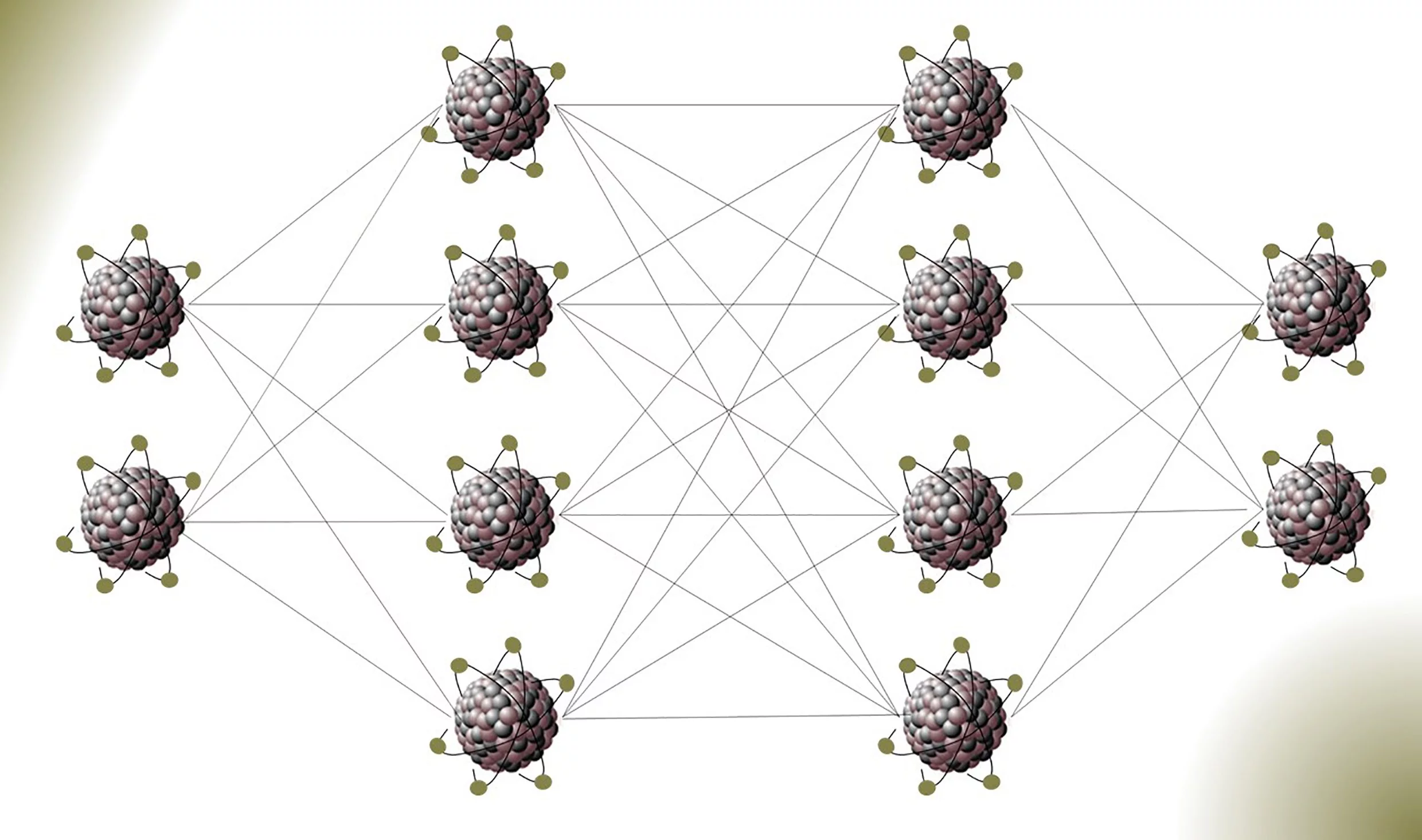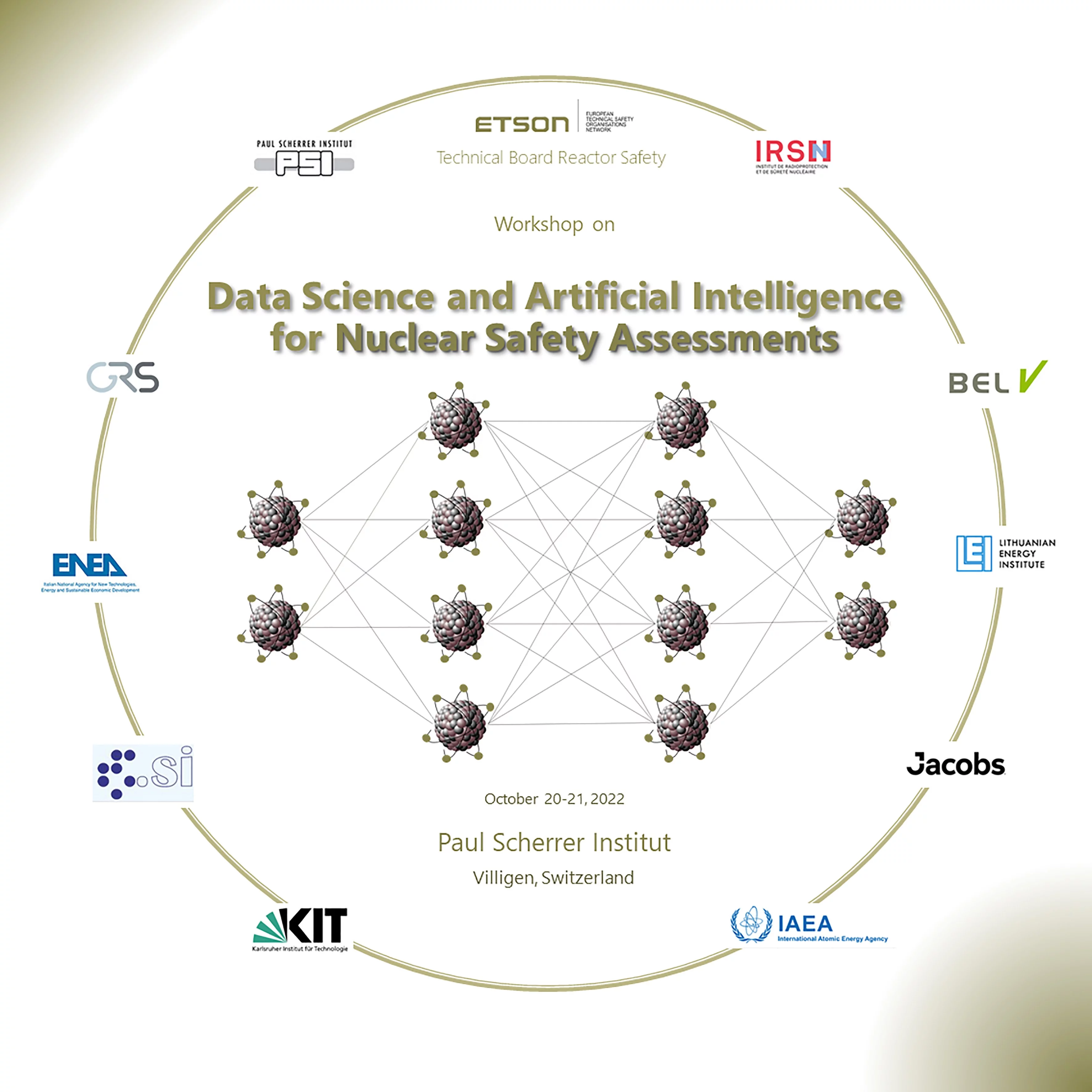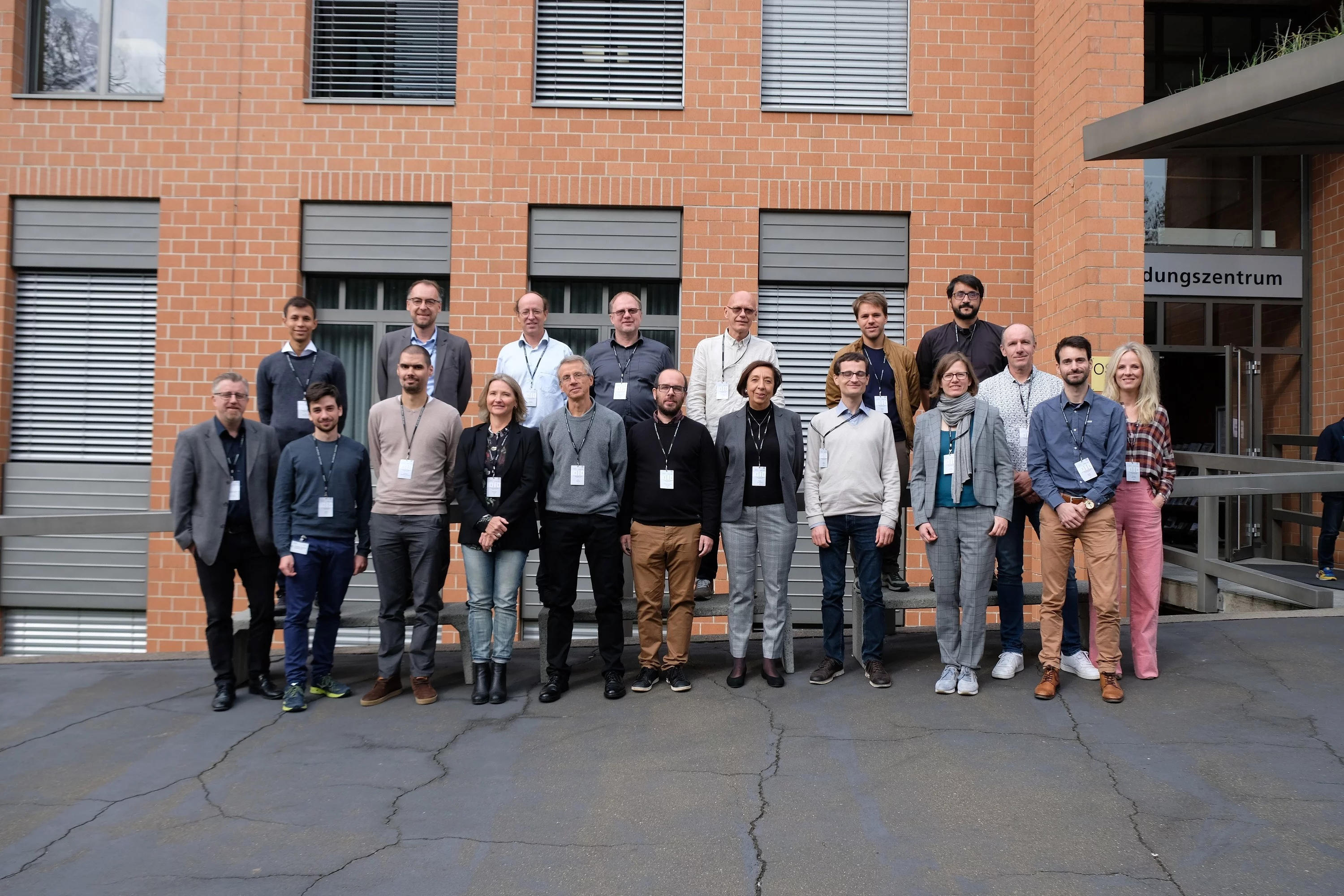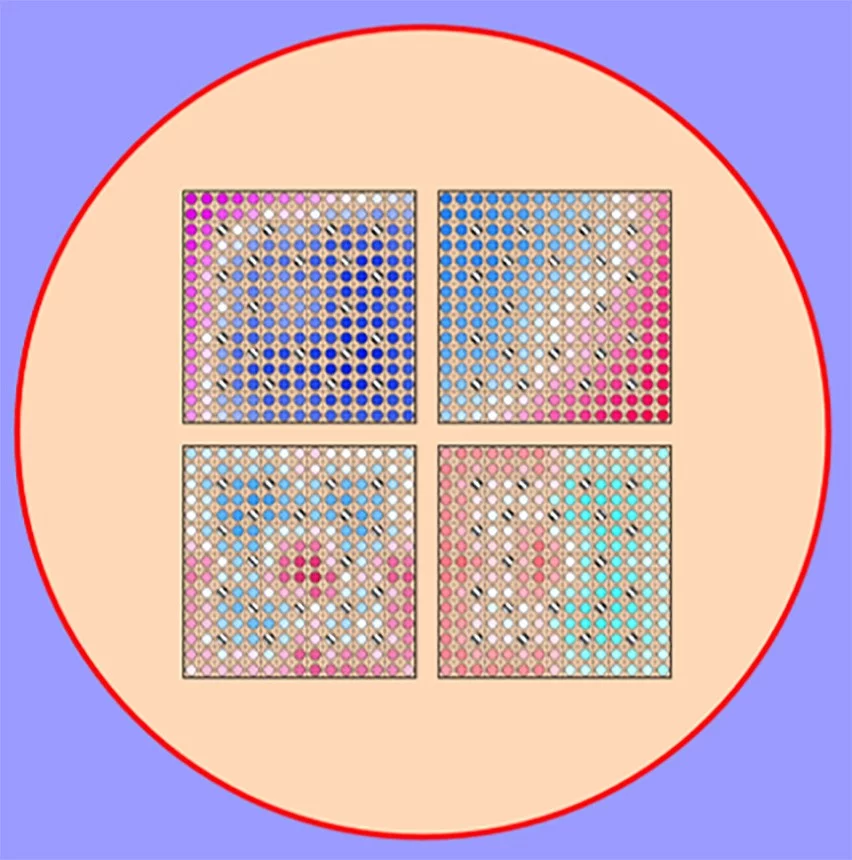Data science (DS) and artificial intelligence (AI) methods opens up an immense range of new opportunities and challenges in the context of continuously enhancing the complex methodologies used as basis for nuclear safety assessments. However, one fundamental question is how such DS/AI techniques relying on computational algorithms instead of physics-based methods could be deployed in compliance with the very strict requirements of nuclear safety assessments. An associated key question is what will be the role of DS/AI techniques in future nuclear safety assessments. Another central question is how should the training and education programs of nuclear engineers and scientists be adapted such as to enable a qualified usage of such methods in nuclear safety assessments.
On this basis, following discussions in the ETSON Technical Board on Reactor Safety, the PSI laboratory for reactor physical and thermal-hydraulics organized recently an ETSON workshop to review and discuss the assimilation of DS/AI methods in nuclear safety. The workshop, referred to as “DS/AI in nuclear safety assessments” took place on October 20-21, 2022 as a hybrid meeting with close to 40 participants from 8 ETSON members as well as 2 international organizations invited as observers (see Fig.1 and Fig. 2).
At the workshop, examples of activities involving DS/AI and currently undertaken by the members were presented, both in relation to supporting safety assessments and decision making as well as with regards to research and education. This allowed to clearly put in evidence that similarly as at PSI, a wide and growing range of developments with integration of DS/AI methods to complement and/or inform probabilistic- as well as deterministic safety analysis methodologies are taking place (Fig. 3).
The workshop was concluded by a wrap-up session where participants discussed both learnings from the workshop as well as proposals for strategies and actions forward. As main conclusion, it was recommended to create a new expert group dedicated to DS/AI for nuclear safety. In a first stage, the aim of this group would simply be to follow-up and consolidate the information exchange between ETSON members that took place at the workshop. As next steps, several paths could be envisaged such as e.g. develop safety related guidelines, organize cross-organizational benchmarks, foster collaborations with universities and data science communities as well as strengthen the bridge from nuclear safety research to open data and science.
The presented topics covered many areas, including critical event identifications, accident management, fire analyses, nuclear criticality assessments, boiling crisis in reactor cores, source term characterization for severe accident and/or used nuclear fuel management (Fig. 4) as well as uncertainty quantifications, experimental validation and participation in coordinated international research projects.
Contacts
Hakim Ferroukhi
Laboratory for Reactor Physics and Thermal-Hydraulics
hakim.ferroukhi@psi.ch







